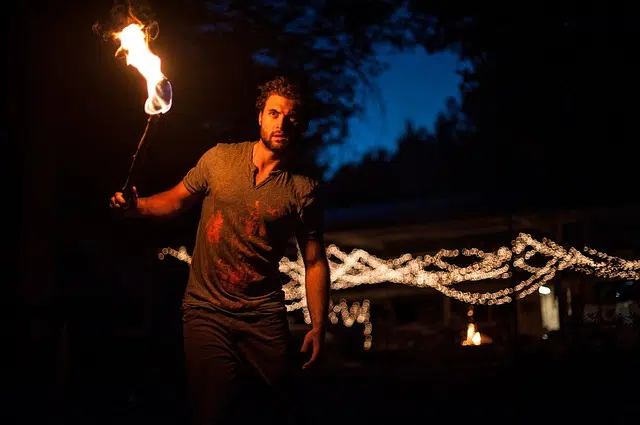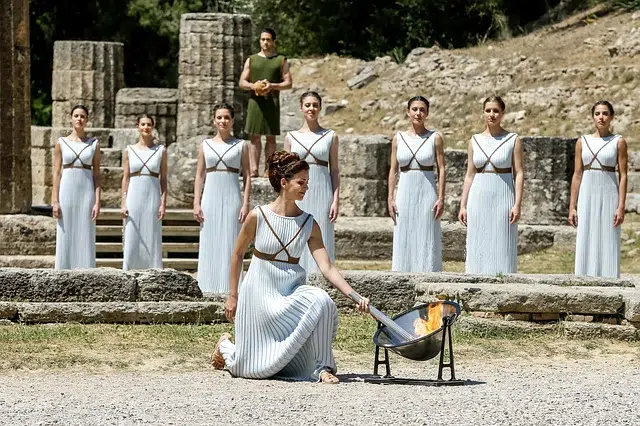
Torches allow you to illuminate a path or an environment.
The etymology of torch is unclear, although it is believed that the term could derive from the Occitan word entorcha . A torch is a portable object that can burn at one end , thus serving as a source of illumination .
It generally consists of a stick with a cloth that is soaked in a flammable substance . In this way, it is possible to light the cloth located at one end and take the torch at the other end, so that the fire can be transferred.
In ancient times, torches were often placed on the walls of a castle or other building to illuminate the hallways. If a person needed to transport the lighting to another environment, they could call on one of these torches and move with it.
Origins of the torch
Once prehistoric humans managed to master fire, they began to light bonfires with the aim of lighting the caves, warding off predators, cooking food and keeping warm. It is estimated that the torches emerged almost spontaneously from the sparks caused by those bonfires.
Little by little, different types of torches emerged, which were a key element for man for thousands of years. Even in the Middle Ages, torches were the basis of public lighting .
The development of the torch that we know today is due to the Egyptians . This town was the first to resort to the format of a stick with a combustible end: what the Egyptians did was use straw that they impregnated with resin or wax.
Symbol of the Olympic Games
The Olympic Games , which take place every four years unless some extraordinary situation prevents it, are considered the largest multidisciplinary event in world sport. One of its traditions is the lighting of the Olympic flame , which is carried by a torch through a system of posts or relays .

The tradition of the Olympic torch dates back to Ancient Greece.
The Olympic flame arose in the Ancient Olympic Games as a reference to the theft of the fire of the gods perpetrated by Prometheus . After a time without being carried out, the ritual was reintroduced in Amsterdam in 1928 ; from Berlin 1936 , includes the torch relay trip from Olympia to the event venue.
Currently the flame is lit in Olympia and, with a torch, carried to Athens . From the Greek capital the itinerary begins to the city that hosts the edition of the Olympic Games . Those who carry the Olympic torch are famous athletes and prominent personalities from other fields.
The torch as a guide
The dictionary of the Royal Spanish Academy ( RAE ) also recognizes a symbolic use of the notion. What works as a compass or allows us to illuminate knowledge can be called a torch.
For example: “The work of the German chemist was a torch that radiated light in a dark time for science,” “Unintentionally, with his gaucho stories the writer became a torch in the rural areas of the province,” “The “Peruvian singer continues to be a torch capable of dazzling at every concert.”
